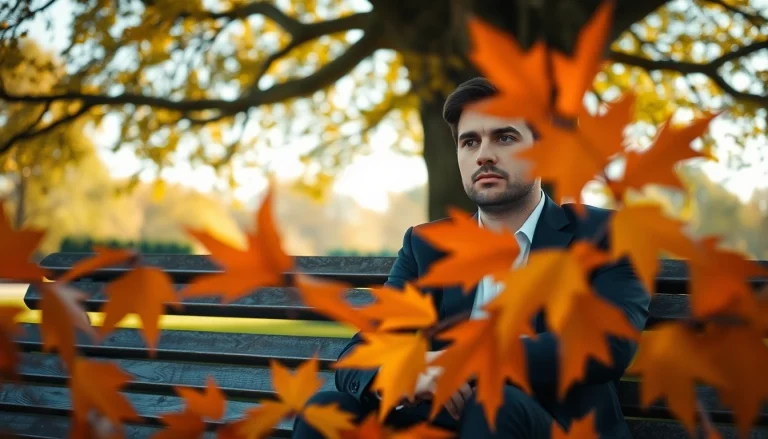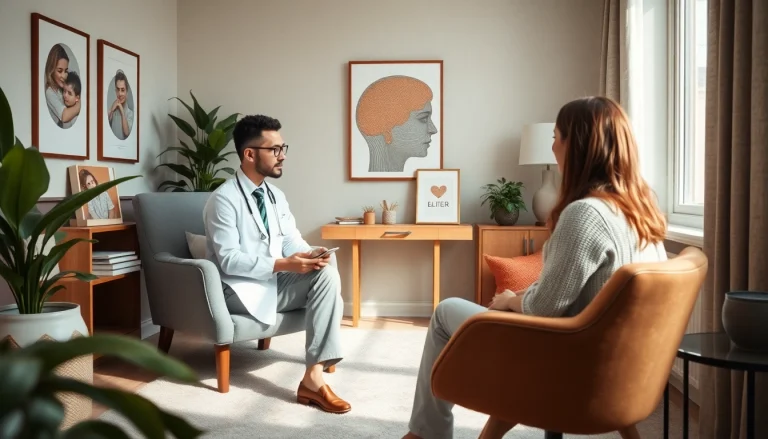
Understanding Attachment Theory
Attachment theory, developed by psychologists John Bowlby and Mary Ainsworth, offers a foundational understanding of how early relationships with caregivers shape emotional and relational patterns throughout our lives. The framework identifies different attachment styles, which can significantly influence interpersonal relationships, mental health, and personal development. For those seeking guidance in navigating such complexities, consulting an attachment theory specialist can be invaluable.
Basics of Attachment Styles
Attachment styles typically fall into four categories: secure, anxious, avoidant, and disorganized. Understanding these styles not only clarifies one’s relational tendencies but also illuminates the underlying fears, desires, and coping mechanisms that impact interactions.
- Secure Attachment: Characterized by comfort with intimacy and a balance between dependence and independence.
- Anxious Attachment: Involves a strong desire for closeness coupled with fears of abandonment, often leading to clingy behavior.
- Avoidant Attachment: Reflects a reluctance to depend on others and often results in emotional distance in relationships.
- Disorganized Attachment: Encompasses a mix of anxious and avoidant behaviors, often stemming from trauma during formative years.
Impact on Relationships
The attachment style developed in childhood frequently extends into adult romantic partnerships and friendships. For instance, individuals with a secure attachment are likely to exhibit healthy communication and emotional expression, fostering stable and satisfying relationships. Conversely, those with anxious or avoidant styles may struggle with insecurity, conflict avoidance, or emotional unavailability, leading to cycles of turmoil or dissatisfaction in their connections. Recognizing these patterns is the first step towards transforming relational dynamics.
Importance of Secure Attachments
Secure attachments are vital for personal well-being and relational health. They contribute to improved emotional regulation, resilience against stress, and the ability to engage in fulfilling relationships. Without secure attachments, individuals may find themselves trapped in a cycle of unhealthy relational patterns, potentially leading to anxiety or depression.
Role of an Attachment Theory Specialist
An attachment theory specialist is trained to navigate the intricacies of attachment styles and their impacts on mental health and relationships. They provide tailored therapeutic strategies to help individuals understand their attachment patterns and foster healthier interpersonal dynamics.
Defining the Specialist’s Scope
The scope of practice for an attachment theory specialist includes assessing attachment styles, exploring the roots of relational disruptions, and facilitating therapeutic interventions. This professional assistance allows individuals to dissect their attachment-related issues, enabling transformative personal growth.
Techniques Used in Therapy
Therapists typically employ several techniques when working with clients on attachment issues:
- Emotionally Focused Therapy (EFT): Focusing on emotional expression within the therapeutic relationship to identify and alter negative relational patterns.
- Attachment-based Family Therapy: Addressing systemic issues in family relationships that affect individual attachment styles.
- Mindfulness Practices: Enhancing self-awareness and emotional regulation to promote secure attachment behavior.
Benefits of Specialized Guidance
Seeking help from an attachment theory specialist offers numerous benefits, such as gaining insights into personal relational patterns, learning effective communication strategies, and developing emotional resilience. Clients often report greater clarity about their needs and healthier interactions with others.
Common Challenges Addressed by Specialists
Many individuals face challenges rooted in their attachment style. An attachment theory specialist can help address these issues, paving the way for healthier relationships and improved emotional well-being.
Fear of Abandonment
For those with anxious attachment styles, fear of abandonment can be pervasive. Specialists work to identify these fears and develop coping strategies that reduce anxiety and foster greater emotional stability in relationships.
Trust Issues and Anxiety
Trust is a cornerstone of healthy relationships, yet many individuals struggle with it due to past experiences. Attachment theory specialists help clients explore their trust issues, guiding them toward rebuilding trust in both themselves and others.
Understanding Your Attachment Style
Gaining awareness of one’s attachment style can be a transformative experience. Specialists emphasize self-discovery and reflection, enabling individuals to understand how their patterns affect their relational dynamics.
Finding the Right Attachment Theory Specialist
Choosing the right therapist is fundamental to successful therapeutic outcomes. It is crucial to look for practitioners who specialize in attachment theory and have a robust understanding of relational dynamics.
Researching Credentials and Experience
When searching for an attachment theory specialist, potential clients should assess the therapist’s qualifications, including relevant education, certifications, and professional experience. A therapist’s background can significantly influence their approach and effectiveness.
Questions to Ask During Consultation
During initial consultations, it is beneficial to ask specific questions that clarify the therapist’s approach:
- What methods do you utilize to address attachment issues?
- Can you describe your experience in working with clients who have similar challenges?
- How do you measure progress throughout therapy?
Building a Therapeutic Relationship
The therapeutic relationship itself is paramount in fostering a secure attachment in the context of therapy. A good fit between therapist and client promotes trust, enabling deeper exploration of attachment issues.
Success Stories and Outcomes
Success stories often serve as powerful motivators for seeking therapy. Individuals who have worked with attachment theory specialists provide insights into the profound changes that can occur.
Personal Transformation Examples
Many clients report significant transformations. For example, individuals previously marked by intense jealousy and possessiveness often evolve into partners who are secure in themselves and their relationships after guided therapy.
Long-term Relationship Improvements
Long-term relationship improvements are common outcomes of working with attachment specialists. Clients frequently experience enhanced communication, resilience during conflicts, and increased intimacy, leading to more fulfilling connections.
Dimensions of Emotional Healing
Emotional healing through this modality often encompasses various dimensions, including improved self-esteem, a broader understanding of one’s emotional needs, and the ability to cultivate healthy relationships. Attachment therapy enables individuals to break free from dysfunctional relational patterns, thus paving the path for healthier future interactions.






